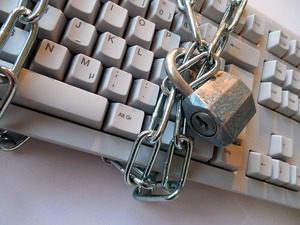 In many ways, passwords should be viewed as your first line of defense where protecting your company’s data is concerned. Sure, you’ve got antivirus software and a firewall in place, and those things are necessary too, but let’s face facts here. The vast majority of data breaches occur because someone was careless with their password and it fell into the wrong hands.
In many ways, passwords should be viewed as your first line of defense where protecting your company’s data is concerned. Sure, you’ve got antivirus software and a firewall in place, and those things are necessary too, but let’s face facts here. The vast majority of data breaches occur because someone was careless with their password and it fell into the wrong hands.
Part of the problem stems from the convoluted password rules that companies establish. The password must be 12 characters long, contain at least one capital letter, one vowel, one number and one special character. The leading character can’t be an upper-case letter. Passwords much be changed every 30 days and can’t use sequential numbers. You know the drill. The above might be an exaggeration, but only slightly.
Rules like these were written to counter the tendency of people using their birthdays, anniversaries or other easily guessed dates. It was an understandable move, but unfortunately, given the sheer number of passwords that most of your employees have to remember, those convoluted rules make it all but impossible to remember them.
What’s the next logical step? Your employees will start writing their passwords down, whether it’s a violation of your policy or not, and who can blame them? It’s all but impossible to remember just one password like that, let alone the half dozen or so that your employees likely need to keep track of.
Password Management Tools To The Rescue
There are a number of password management tools available, and most of them are pretty good and secure. You’ll want to evaluate them to find the one that best suits your needs, but at the root, they all work along the same principles.
The software (sometimes standalone, and sometimes written as a web browser extension), establishes an encrypted, digital safe in which user passwords are stored. Any time a secure system is accessed, the password is automatically retrieved from the safe so that the user does not have to actually remember it. When a password change is required, the new password is automatically fed into the safe, replacing the old one. Thus, all passwords remain secure, and it’s not a nightmare for your employees to remember.
The advantages to using such a system are obvious. First, it improves security, because your employees aren’t inclined to write down their passwords or use other unsecured means to keep track of them. Second, you can create even more robust password rules, so that they’re even harder to guess or break. Both of these things make it harder for your company’s systems to be breached.
There’s also the fact that you’ll likely see a slight uptick in overall productivity, arising from the fact that your employees don’t spend inordinate amounts of time guessing at passwords they struggle to remember or rooting around looking for clues they may have left for themselves. This makes such a solution win-win. You make your system more secure overall, and you save your employees time. What’s not to like about that?